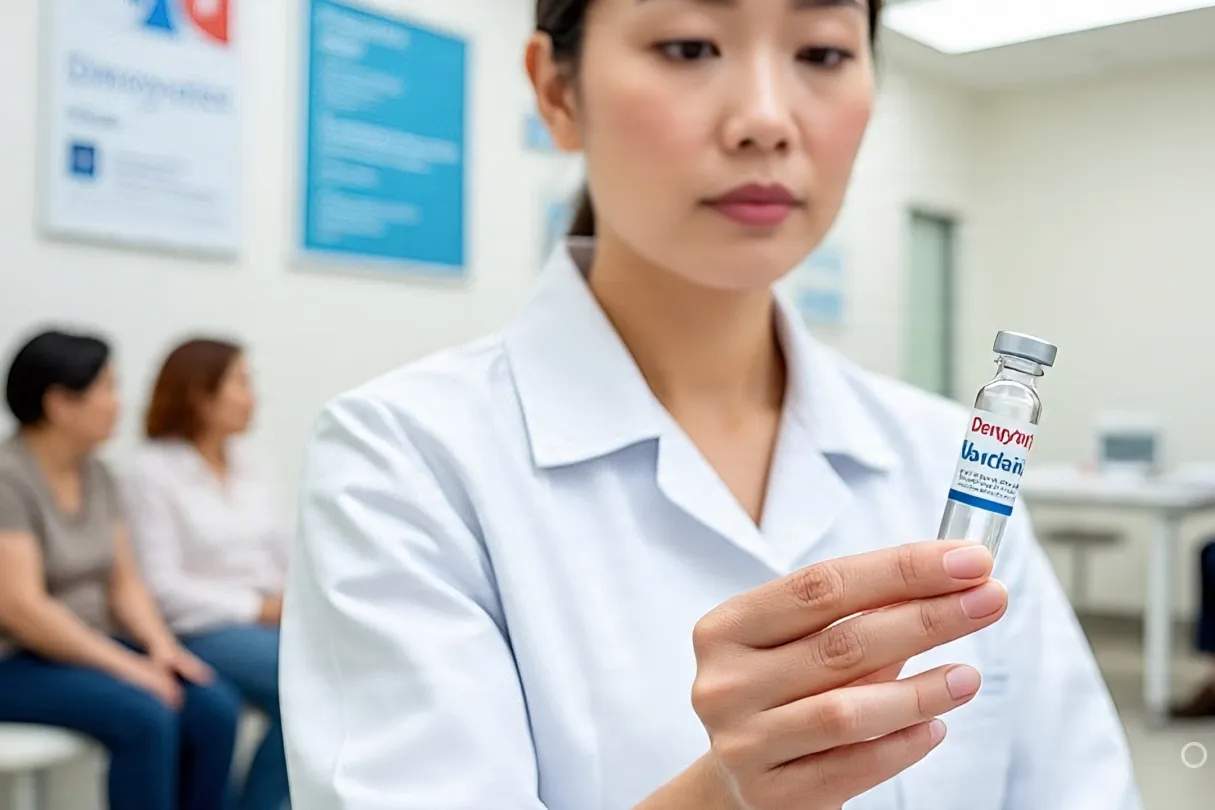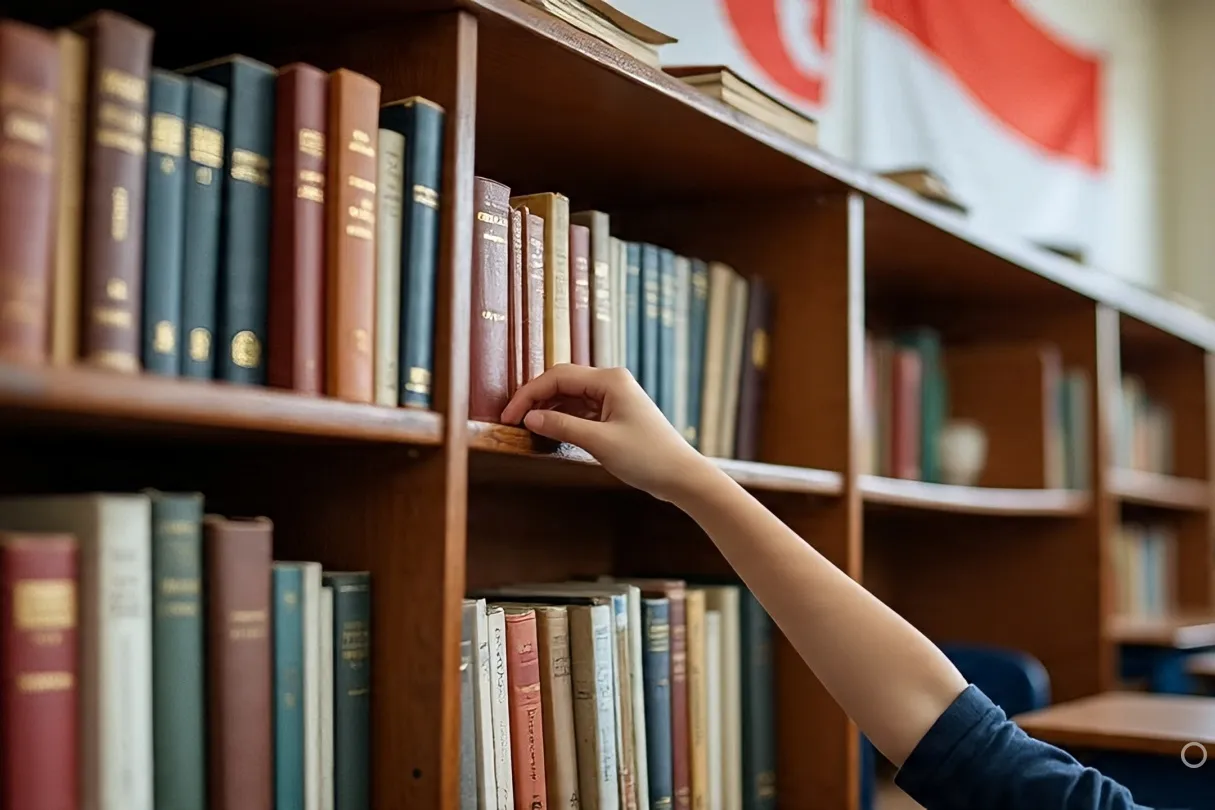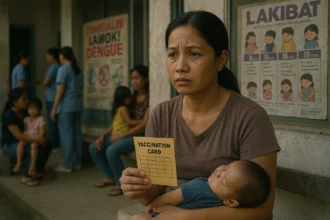🦟 Dengue and the Urgency for a Vaccine
Singapore, a tropical city-state, has long struggled with dengue fever. With dense urban housing and humid weather, it’s a prime breeding ground for Aedes mosquitoes. Outbreaks can spike into the thousands of cases annually, burdening healthcare systems and worrying citizens.
- 🦟 Dengue and the Urgency for a Vaccine
- 🧪 The Science Behind Dengvaxia
- 🏥 How Singapore Responded
- 💬 Online Forums and Whispers of Risk
- 📊 What the Data Shows
- 🌏 Regional Comparison: Singapore vs. Philippines and Malaysia
- ⚖️ Communication: Calm or Too Quiet?
- 🧭 Conspiracy or Communication Failure?
- 🌱 Lessons for Public Health Trust
In this environment, the promise of Dengvaxia—the world’s first dengue vaccine developed by Sanofi Pasteur—seemed like a turning point. But across Southeast Asia, especially in the Philippines, the rollout of this vaccine triggered intense controversy, leading to public backlash, legal battles, and conspiracy theories about government negligence.
📢 In Singapore, the controversy played out more quietly—but questions remain. Did the government communicate transparently? Were citizens adequately informed? And are the lingering suspicions more about science, or trust?
🧪 The Science Behind Dengvaxia
Dengvaxia was designed to protect against all four dengue virus serotypes. However, post-release data revealed a critical flaw: the vaccine could increase the risk of severe dengue in individuals who had never been previously infected.
🧬 According to the World Health Organization (WHO), Dengvaxia should only be given to individuals who have confirmed past dengue infection. In those who are dengue-naive, the vaccine may prime their immune system in a dangerous way, making future infections worse.
That finding shifted global policy and created panic—particularly in the Philippines, where over 800,000 children had already been vaccinated.
🏥 How Singapore Responded
Unlike the Philippines, Singapore’s Ministry of Health (MOH) never launched a mass Dengvaxia vaccination campaign. Instead, it took a cautious, targeted approach.
📋 Timeline of Singapore’s Dengvaxia response:
- 2016: Dengvaxia is approved by Singapore’s Health Sciences Authority (HSA) for use in individuals aged 12 to 45.
- 2017–2018: As safety concerns surfaced globally, the MOH emphasized selective administration and postponed plans for public use.
- 2018 onwards: Use of Dengvaxia is limited to private healthcare, with strict guidelines.
🎙️ A medical officer from Tan Tock Seng Hospital (anonymous) told us:
“There was never a push to vaccinate the masses. We were told early on to verify prior infections before recommending the vaccine.”
📢 The MOH issued advisories but avoided dramatic headlines, opting for calm, science-based updates. This strategy helped avoid panic—but may have contributed to limited public awareness.
💬 Online Forums and Whispers of Risk
Despite Singapore’s controlled rollout, online chatter persisted. Reddit threads, parenting groups, and alternative health sites began questioning the vaccine:
🔍 Common concerns include:
- Were long-term effects of Dengvaxia being hidden?
- Was data on Singaporean recipients being shared?
- Why wasn’t there more mainstream discussion?
🧠 A mother from Bukit Batok shared in a forum:
“We only found out about the vaccine when it was already being sold at clinics. Shouldn’t there have been more public education?”
While the Singapore government’s low-drama approach minimized backlash, it may have also allowed conspiracy theories to quietly fester.
📊 What the Data Shows
📈 Based on MOH statements and expert reviews:
- Dengvaxia was administered under strict conditions, primarily in private clinics
- Pre-vaccination screenings were emphasized
- No major adverse event clusters were reported publicly
Singapore also had one advantage: it didn’t rush. By the time Dengvaxia became available, data from the Philippines had already begun raising red flags. Singaporean regulators and practitioners had time to adjust policy accordingly.
🎓 A vaccine policy researcher from NUS noted:
“Singapore used the Philippines as a cautionary tale. It was a textbook example of what not to do.”
🌏 Regional Comparison: Singapore vs. Philippines and Malaysia
Here’s how the Dengvaxia strategy unfolded across the region:
| Country | Rollout Strategy | Result |
|---|---|---|
| Philippines | Mass vaccination (800,000+) | Public backlash, lawsuits, drop in trust |
| Malaysia | Delayed approval, cautious use | Minor public concern, limited use |
| Singapore | Controlled private use only | Low uptake, minimal media coverage |
📌 Singapore’s restrained method contrasts sharply with the high-stakes rollout in the Philippines, where poor risk communication led to widespread panic.
⚖️ Communication: Calm or Too Quiet?
The core criticism of Singapore’s Dengvaxia approach isn’t about recklessness—but about silence. While government agencies issued advisories, there was no sustained public campaign.
🤐 This left many citizens learning about the vaccine through whispers and internet speculation.
📢 Critics argue:
- Risk communication should be proactive, not reactive
- Low media coverage fosters suspicion
- Citizens deserve to know the scientific reasoning behind policies
🎙️ A digital health expert commented:
“Silence can be interpreted as secrecy. In an age of misinformation, governments must over-communicate—especially when it involves children.”
🧭 Conspiracy or Communication Failure?
So, is there a conspiracy to hide the dangers of Dengvaxia in Singapore?
💡 Based on available evidence: unlikely.
✅ No mass rollout. ✅ No known death clusters. ✅ Adherence to WHO guidelines.
But poor public engagement leaves room for doubt. In an era where misinformation spreads rapidly, absence of communication can breed conspiracy just as effectively as lies.
🌱 Lessons for Public Health Trust
The Dengvaxia chapter in Singapore offers a subtle, but important lesson: good science needs great communication.
📌 Moving forward, policymakers must:
- Use plain language to explain scientific risks
- Be transparent—even when decisions are complex
- Proactively address online fears
Because in public health, trust is the real vaccine against conspiracy.




